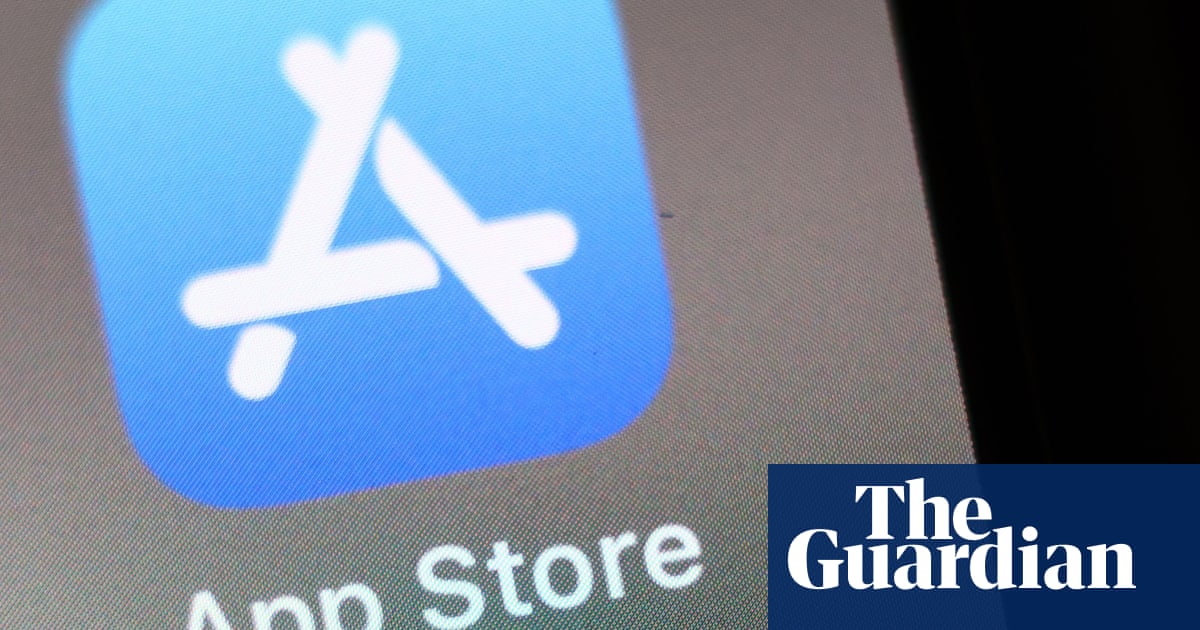Australians could soon be able to download apps outside theAppleApp Store and avoid extra charges on purchases made on the iPhone under a federal government proposal, but the tech company has warned EU-style competition rules for apps risks security and may harm competition.
Australian users cannot subscribe to Netflix or Spotify through their iOS apps, whileGooglecharges a premium on YouTube subscriptions through the App Store and Amazon does not let Kindle users buy ebooks through the app.
This is due to Apple taking a cut of up to 30% on in-app purchases, which applies to the highest-earning apps. The companies cannot advise customers how to make the purchase elsewhere, under Apple rules.
Ina paper releasedlast November the government outlined a proposal to “designate” digital platforms like the Apple App Store.
Sign up for Guardian Australia’s breaking news email
This would compel those platforms to comply with obligations that target what the government deems to be anti-competitive conduct.
The paper highlights the in-app payment scheme favoured by Apple as an example of the type of behaviour the competition regulator could target once a platform is designated, as well as allowing users to download apps from places outside the official App Store – known as sideloading.
In its response to the paper, Apple said the government should not use theEU’s Digital Marketsas “a blueprint” for the scheme.
“The DMA requires changes to Apple’s ecosystem that bring increased privacy and security risks to users, opening the door for malware, fraud and scams; illicit and harmful content; and other threats,” the company said.
Apple argued that the 30% rate was only charged to the highest-earning apps, with 90% of the US$1.3tn in sales and billings generated through iOS apps being paid without Apple taking a slice. It said most developers who did pay were charged 15%.
The company has also warned against sideloading apps. In addition to the security risks Apple said would come with it not being able to vet the apps that users install, the company said in the submission that, in the EU, pornography apps and apps allowing copyright infringement can be installed.
Users have long been able to download apps on to MacBooks and other traditional computer devices this way. The Android platform also allows sideloading of apps and third-party purchases outside the Google Play store.
Sign up toBreaking News Australia
Get the most important news as it breaks
after newsletter promotion
The company also claimed the DMA was the reasonfor Apple delaying the launch of its AI features.
Telsyte’s managing director and principal analyst, Foad Fadaghi, said opening up Apple’s platform might be useful for some users but would not change how most people used their iPhones.
“There might be concern from users who look for heightened security and privacy from Apple devices, and most will choose the locked-down mode as default,” he said.
Australia is not an outlier – Apple is facing regulatory and legal pressure over its App Store dominance inAsia, Europe andthe US. While the company has complied with the laws in those jurisdictions it has resisted pressure to make the App Store globally consistent. Apple previously changed its hardware globally to useUSB-C connectors to comply with EU rules.
The government has yet to announce next steps in the process, and the submissions to the paper have yet to be published by the Treasury.
A federal court judgment on Epic Games’ case against Apple and Google over app store practices is still to be handed down,nearly one year after the hearings ended.
